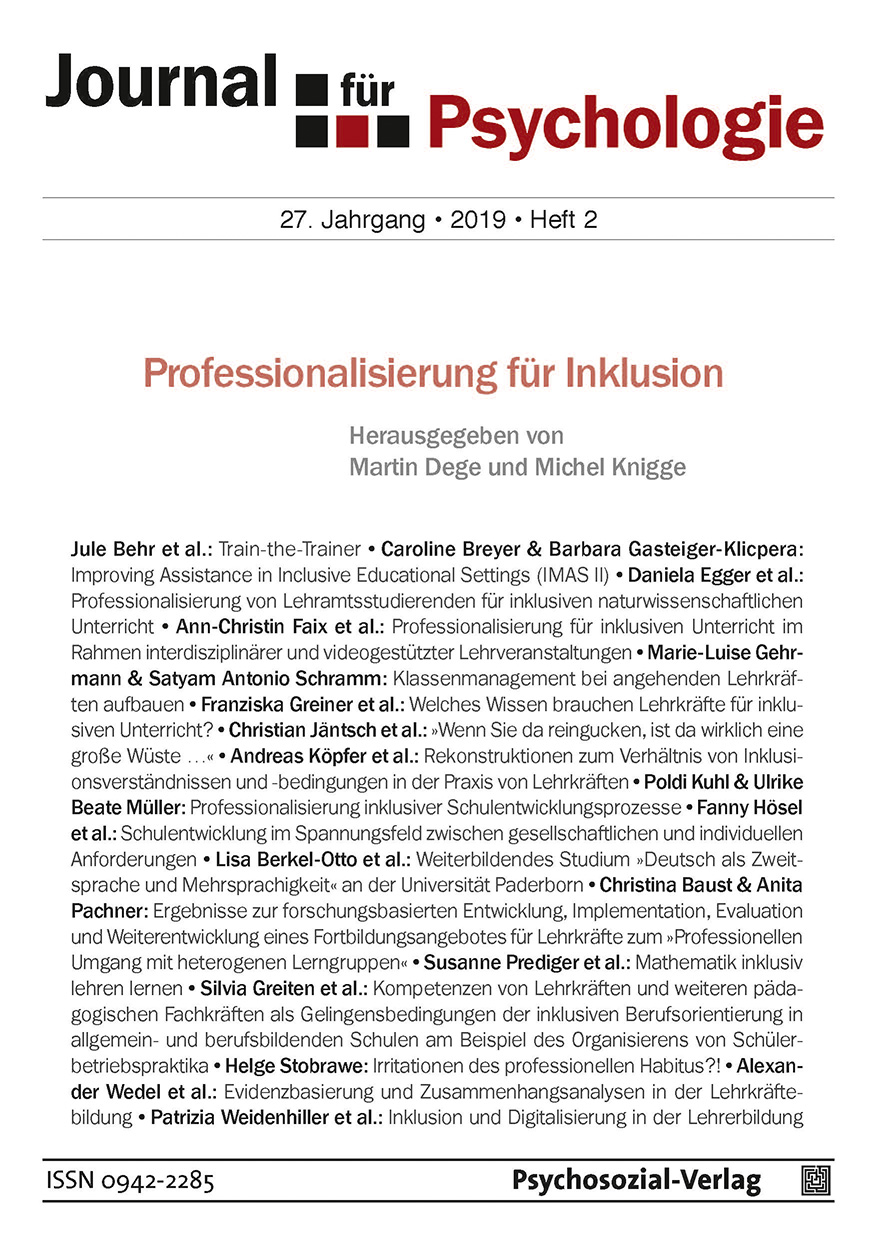What knowledge do teachers need for inclusive education? Perspectives on Professional Practice
DOI:
https://doi.org/10.30820/0942-2285-2019-2-117Keywords:
inclusion, professional development, knowledge, professional practiceAbstract
Research about teaching competencies in the context of inclusion focuses so far attitudes and does not take adequate account of professional knowledge. This paper investigates what kind of knowledge is relevant from the view of teachers in practice to handle inclusion in schools. Interviews of 53 teachers of different types of school were analysed qualitatively with a literature based category system. First, the perspective of all interviewed teachers is presented. It follows an analysis, which regards the type of school and the level of school development. Our results show that teachers use the categories, which are abstracted from the research literature. These categories need to be supplemented by inductive categories. There is a difference between the types of school, and a relation between school context and professional development of individual teachers. This could be discussed as a specific indication for teacher trainings, which aim to foster inclusive competencies.Downloads
Published
2020-05-01
How to Cite
Greiner, Franziska, Sabine Sommer, Stefanie Czempiel, and Bärbel Kracke. 2020. “What Knowledge Do Teachers Need for Inclusive Education? Perspectives on Professional Practice”. Journal für Psychologie 27 (2):117-42. https://doi.org/10.30820/0942-2285-2019-2-117.
Issue
Section
Schwerpunkt
License
Copyright (c) 2020 Journal für Psychologie

This work is licensed under a Creative Commons Attribution-NonCommercial-NoDerivatives 4.0 International License.
This license allows private use and unmodified distribution, but prohibits editing and commercial use (further information can be found at: https://creativecommons.org/licenses/by-nc-nd/4.0/).
The terms of the Creative Commons licence only apply to the original material. The reuse of material from other sources (marked with a reference) such as charts, illustrations, photos and text extracts may require further permission for use from the respective copyrights holder.



